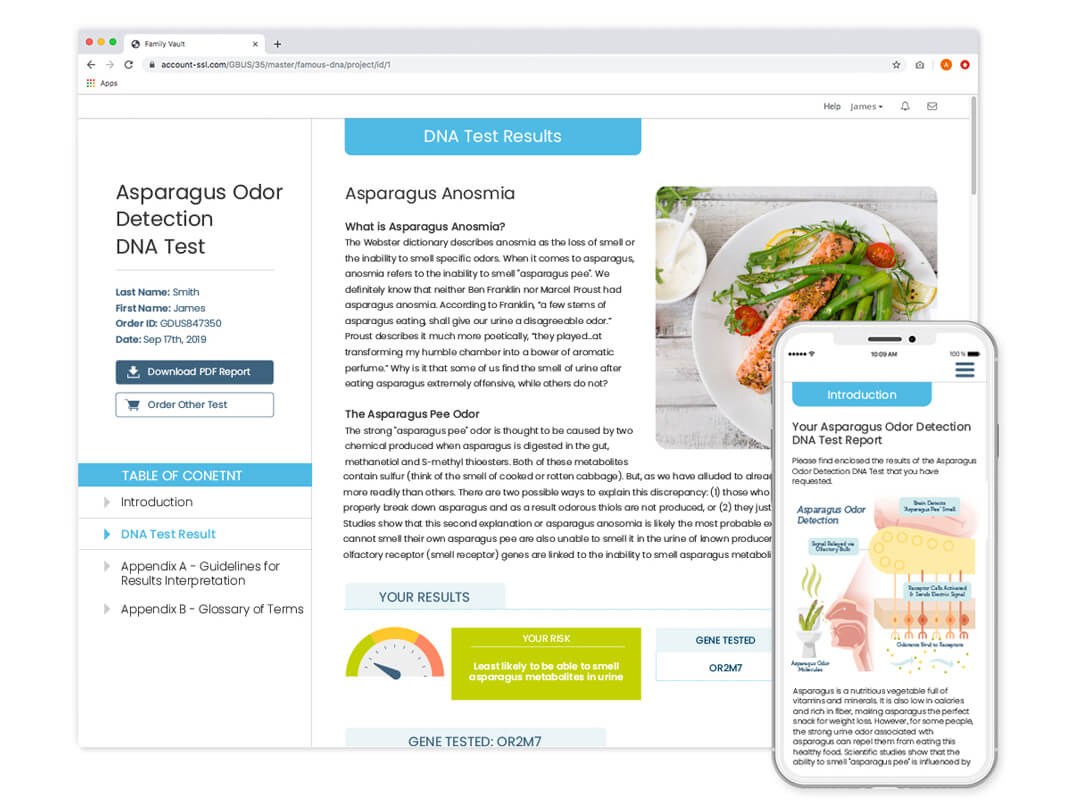Asparagus Odor Detection DNA Test
Asparagus is a nutritious vegetable full of vitamins and minerals. Are you someone who has the ability to smell “asparagus pee?” Find out with this DNA test.
- Includes the OR2M7 gene associated with asparagus odor detection
- Individuals with the variant are able to smell the metabolites of asparagus in their urine
- 100% private and confidential online results
Already have DNA markers? Sign in and upload your data to view results.
Need to take the DNA Test? Order our easy-to-use swab kit.





